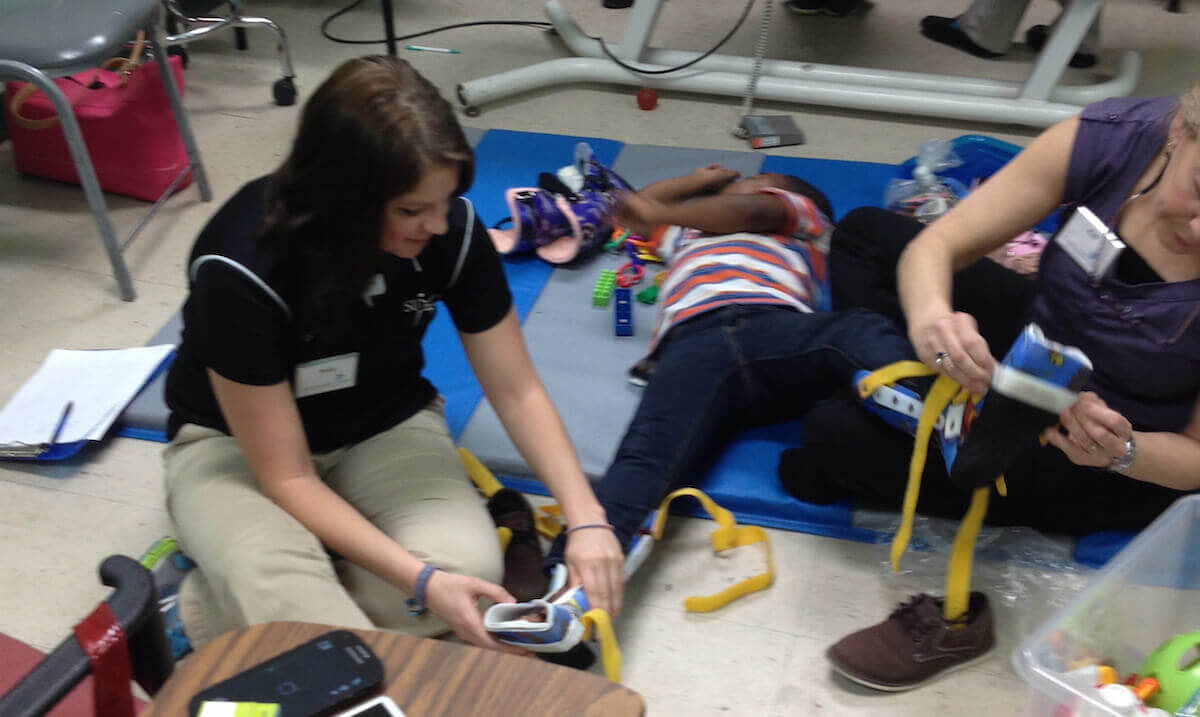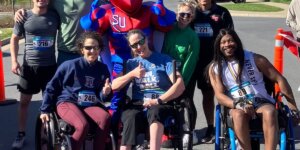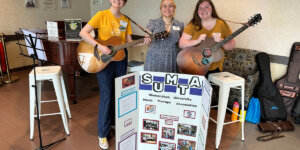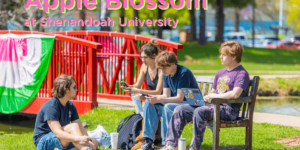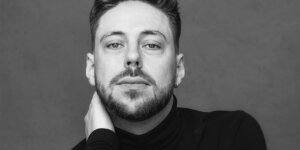Earlier this year, Shenandoah University third-year physical therapy students Blair Ringley ’16 and Baily Leonard ’16 joined a team from the World Pediatric Project (WPP) for the organization’s clinical mission trip to St. Lucia, St. Vincent and the Grenadines. The group provided custom therapy services to a total of 65 patients and, due to multiple therapy sessions for some patients, made a total of 75 evaluations.
The university’s physical therapy program emphasizes global experiences and service to others, and because of that commitment, offers clinical rotation options outside of the United States. Ringley and Leonard completed the 10-day, mission trip-style clinical rotation during their 2015 spring break as second-year students.
“The World Pediatric Project was an awesome organization to do this through, since their main mission is to provide quality, free medical care to children in underserved communities,” said Leonard. “We went with two physical therapists and it was great to learn from them while having the opportunity to help children in need.”
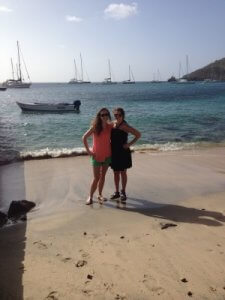
Physical therapy students Blair Ringley (left) and Baily Leonard (right) volunteered for a clinical rotation in the Caribbean
Both Ringley and Leonard have an interest in working in the pediatrics field, traveling and serving others, so this was a perfect learning opportunity for the pair.
“The most memorable part of this trip was how grateful the parents of children were,” said Leonard. “Children with disabilities are often overlooked in other cultures, and the parents really appreciated having someone care for their child, teach them ways to help their child and just answer any medical questions they had. Parents were so thankful for something as simple a brace or a pair of shoes for their child.”
“For me, the most memorable moment of the trip was bonding with one of the children brought in from the orphanage,” said Ringley. “They told me she was relatively quiet, and didn’t often speak to people. After fitting her in a new pair of shoes and ankle-foot orthotics, she wanted to stay with me as I helped with other children. She was so excited about her new shoes, you could see it in her eyes as she stared at them. After a few minutes, she tapped me on the shoulder and in a whispered voice sang, ‘This is the day…’ I immediately recognized the tune from youth worship at my church and knew it was a song sung in a back-and-forth fashion, so I repeated, ‘This is the day.’ She absolutely lit up and responded ‘That the Lord has made!’ and wrapped her arms around my neck laughing and smiling.”
The students both indicated that thinking outside of the box and making use of whatever resources were at their disposal were two invaluable lessons learned during the trip.
“This type of clinical rotation teaches you to think differently than would a rotation in the United States,” said Leonard. “We had to learn quickly how to be resourceful and provide quality care without the tools readily available in the U.S. Also, we were only able to see each child once, so we have to decide what would be most helpful long-term, for the patient – especially with parent education – in a 30-minute treatment session.”
“It was interesting being in the Caribbean for mission work,” said Ringley. “Everything was about making a home exercise program or even just a plan for home, because there’s no telling when the child will get physical therapy services again – it could be months, or even a year before WPP returns – and making sure the parents felt comfortable with the plan.
“We spent a lot of time educating the parents and caregivers, helping them make modifications to daily routines, seating arrangements – seemingly simple things that could make a huge difference in their daily lives,” Ringley added. “From that, I was able to bring back a different form of creativity – using buckets to make chairs! – and a newfound appreciation for the continuum of care we have in the U.S. It was invaluable learning how to use only what you have, especially when resources are limited, for treating patients because it really makes you think outside of the box as well as identify what is truly necessary.”
